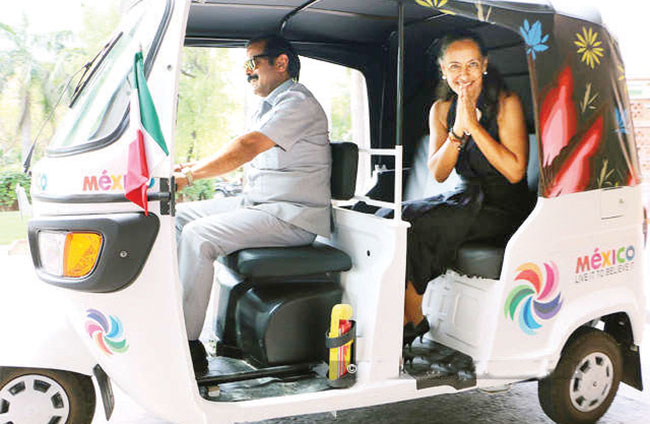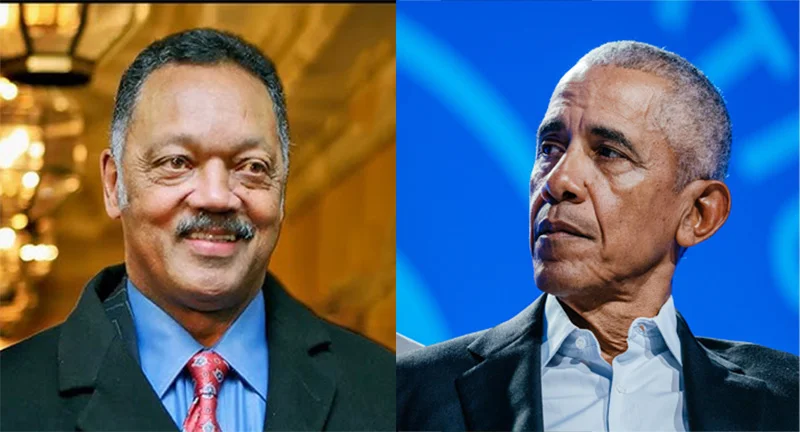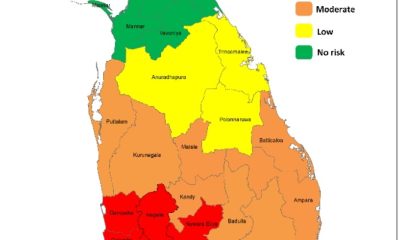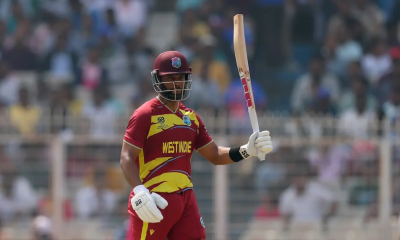Features
The ubiquitous Tuk Tuk elevated to ambassadorial level

The Sri Lankan three wheeler or tuk tuk and the Indian auto rickshaw are equally loved and despised, but used very much in both countries. Over here they have spread to every city, hamlet and even village. Needless to fear there will be no transport to hire when one descends from bus or train. There will always be the little bug waiting for a fare. And once in a while such a vehicle is the only negotiable one on rutty, inclined roads.
Love and hate? Car-less and permanently driverless women love the little three wheeled contraption. They are taken around marketing, shopping, escorting kids home from school. But male car owner-drivers detest them as dangerous clogs in traffic. They see dark pink when a tuk tuk is observed, red being reserved for private bus drivers. Most housewives adopt a three wheeler that makes for convenience, safety and even camaraderie with the guy at the handle bar. It’s good to adopt a known guy. I have two such – the white capped charioteer and the ex-sportsman gone to spread. The former will take me right into a bank or shop if at all possible. Compromises by stopping with no space left between entrance step or door and invariably warns “paressamen, hemin”. The other takes time to enquire after an ex-domestic whom he carefully conducted to visit relatives and my grandson who loved spinning around with his ‘Sampatha.’ These two are definite blessings in life, I count.
The Ambassador’s vehicle
Ambassador from Mexico to India (2015 – 2018), Melba Pria, made a definite statement of her belief in equality and her avowed aim of “promoting inclusion and strengthening public policy in Mexico and abroad” when she commissioned an auto rickshaw as her official vehicle in New Delhi. She had an auto rickshaw custom built for her designed by a visiting Mexican artist, thus earning herself the sobriquet of ‘Auto Rickshaw Diplomat.” A video  sent me had her happily riding behind her suitably suited official driver, Jagchal Chana Dugal, flying the Mexican flag and the cab painted carnival bright with flowers, birds, fruit. The driver may have been duly shocked and to an Indian, a lowering of status. He had to learn to drive a lowly vehicle. Pria’s statement was that she considered herself a Delhi-ite and living in the city did what Delhites did – riding auto rickshaws all the time.
sent me had her happily riding behind her suitably suited official driver, Jagchal Chana Dugal, flying the Mexican flag and the cab painted carnival bright with flowers, birds, fruit. The driver may have been duly shocked and to an Indian, a lowering of status. He had to learn to drive a lowly vehicle. Pria’s statement was that she considered herself a Delhi-ite and living in the city did what Delhites did – riding auto rickshaws all the time.
Parliament did not allow this type of vehicle in the premises. She promptly sent a letter of protest/request to the Speaker and won her case. In Sri Lanka a three wheeler is considered a lesser vehicle and many places do not allow such to proceed beyond a certain limit. I’ve met this setback when visiting friends in Crescat Apartments. Also, three wheelers are not allowed in the car park of HSBC, Baudhaloka Mawata. They may have their reasons and Nan won’t fight for equality among vehicles, though to her as a woman who uses them constantly, she feels they should be treated on par with other vehicles. Little wonder that such as I retches with disgust when she sees politicos arrive in their massive limousines provided gratis by the government and petrol paid for by people’s taxes.
Ambassador Pria had visited India previously and was an admirer of Tagore. She sat on the lap of Ravi Shankar and played the sitar when her mother was the Mexican Minister of Culture. She even boastfully claims her name is part Indian and means ‘pleasant’. “India is friends, family, home and so many other things, even my doctors are here.” She loves Delhi with its range of cultural activities.”Delhi is many cities within one city but one must be brave to be an outdoors person here.” She cycles too.
Her affinity to the country was shared by her brother, who, when ill, was brought by her to Delhi to consult a doctor. He died but had said he wanted to bathe in the holy waters of the Ganga in Benares. His ashes were given her with the pot draped in an Indian cloth. She went home with a Mexican cloth over the Indian, symbolically. When she was posted to Japan after her stint in India, she took her auto-rickshaw along. However, what I read did not say it was driving her around the streets of Tokyo – very improbable with the Japanese almost maniacal about cleanliness and atmospheric non-pollution.
Antecedents
The tuk tuk that is now ubiquitous in Sri Lanka having invaded the Hill Country too is, with its relatives overseas, a vehicle descended from the two-wheeled Italian scooter – Vespa. Italian aircraft designer Corradino D’Ascania evolved the three wheeled vehicle in 1948 and called it Trivespa. In 1956 a cab or hood was added and it was knows as the Piaggio Ape; ‘ape’ being Italian for bee, the vehicle making a buzzing sound.
In Sri Lanka
Recently the tuk tuk came into prominence. Asked to leave his post, OK, sacked, State Minister for Education Reform, Susil Premajayantha, left his office for good in a hired three wheeler which took him home. Or out of camera sight. Did he transfer to his own vehicle (luxury or not) when safe from media scrutiny? No doubt it was a PR stunt. Was it to show he is just one of us? He has no vehicle of his own? He was quoted in a tv clip saying he’ll get himself a car. Whether a dismissed Minister or not, he is a politician with all its attendant characteristics. No pity felt for this SLFPer who was the first to sign membership of the SLPP.
The lowly but much appreciated three wheeler gained customers since Covid 19 when people were advised to travel in open vehicles and taxi drivers hardly ever lower their windows in their air conditioned vehicles. We heard rumours the tuk tuks were to be taken off streets and imports banned by this government when it was new in office. A trick up its collective sleeve? We need this poor man’s vehicle in this country driven to poverty by persons in power who lived grand and built white elephants beyond their and the country’s means.
Of course you get the odd bod in the driving seat – the inexperienced, even unlicensed driver; the aspiring Formula One speedster; and the Lothario who looks back more than watches the road. The advantage is you can tell him off, exhibiting the umbrella you have in hand. That’s a plus point –being able to hop off a tuk tuk with no doors to delay or keep you in.
Features
How Black Civil Rights leaders strengthen democracy in the US

 On being elected US President in 2008, Barack Obama famously stated: ‘Change has come to America’. Considering the questions continuing to grow out of the status of minority rights in particular in the US, this declaration by the former US President could come to be seen as somewhat premature by some. However, there could be no doubt that the election of Barack Obama to the US presidency proved that democracy in the US is to a considerable degree inclusive and accommodating.
On being elected US President in 2008, Barack Obama famously stated: ‘Change has come to America’. Considering the questions continuing to grow out of the status of minority rights in particular in the US, this declaration by the former US President could come to be seen as somewhat premature by some. However, there could be no doubt that the election of Barack Obama to the US presidency proved that democracy in the US is to a considerable degree inclusive and accommodating.
If this were not so, Barack Obama, an Afro-American politician, would never have been elected President of the US. Obama was exceptionally capable, charismatic and eloquent but these qualities alone could not have paved the way for his victory. On careful reflection it could be said that the solid groundwork laid by indefatigable Black Civil Rights activists in the US of the likes of Martin Luther King (Jnr) and Jesse Jackson, who passed away just recently, went a great distance to enable Obama to come to power and that too for two terms. Obama is on record as owning to the profound influence these Civil Rights leaders had on his career.
The fact is that these Civil Rights activists and Obama himself spoke to the hearts and minds of most Americans and convinced them of the need for democratic inclusion in the US. They, in other words, made a convincing case for Black rights. Above all, their struggles were largely peaceful.
Their reasoning resonated well with the thinking sections of the US who saw them as subscribers to the Universal Declaration of Human Rights, for instance, which made a lucid case for mankind’s equal dignity. That is, ‘all human beings are equal in dignity.’
It may be recalled that Martin Luther King (Jnr.) famously declared: ‘I have a dream that one day this nation will rise up, live out the true meaning of its creed….We hold these truths to be self-evident, that all men are created equal.’
Jesse Jackson vied unsuccessfully to be a Democratic Party presidential candidate twice but his energetic campaigns helped to raise public awareness about the injustices and material hardships suffered by the black community in particular. Obama, we now know, worked hard at grass roots level in the run-up to his election. This experience proved invaluable in his efforts to sensitize the public to the harsh realities of the depressed sections of US society.
Cynics are bound to retort on reading the foregoing that all the good work done by the political personalities in question has come to nought in the US; currently administered by Republican hard line President Donald Trump. Needless to say, minority communities are now no longer welcome in the US and migrants are coming to be seen as virtual outcasts who need to be ‘shown the door’ . All this seems to be happening in so short a while since the Democrats were voted out of office at the last presidential election.
However, the last US presidential election was not free of controversy and the lesson is far too easily forgotten that democratic development is a process that needs to be persisted with. In a vital sense it is ‘a journey’ that encounters huge ups and downs. More so why it must be judiciously steered and in the absence of such foresighted managing the democratic process could very well run aground and this misfortune is overtaking the US to a notable extent.
The onus is on the Democratic Party and other sections supportive of democracy to halt the US’ steady slide into authoritarianism and white supremacist rule. They would need to demonstrate the foresight, dexterity and resourcefulness of the Black leaders in focus. In the absence of such dynamic political activism, the steady decline of the US as a major democracy cannot be prevented.
From the foregoing some important foreign policy issues crop-up for the global South in particular. The US’ prowess as the ‘world’s mightiest democracy’ could be called in question at present but none could doubt the flexibility of its governance system. The system’s inclusivity and accommodative nature remains and the possibility could not be ruled out of the system throwing up another leader of the stature of Barack Obama who could to a great extent rally the US public behind him in the direction of democratic development. In the event of the latter happening, the US could come to experience a democratic rejuvenation.
The latter possibilities need to be borne in mind by politicians of the South in particular. The latter have come to inherit a legacy of Non-alignment and this will stand them in good stead; particularly if their countries are bankrupt and helpless, as is Sri Lanka’s lot currently. They cannot afford to take sides rigorously in the foreign relations sphere but Non-alignment should not come to mean for them an unreserved alliance with the major powers of the South, such as China. Nor could they come under the dictates of Russia. For, both these major powers that have been deferentially treated by the South over the decades are essentially authoritarian in nature and a blind tie-up with them would not be in the best interests of the South, going forward.
However, while the South should not ruffle its ties with the big powers of the South it would need to ensure that its ties with the democracies of the West in particular remain intact in a flourishing condition. This is what Non-alignment, correctly understood, advises.
Accordingly, considering the US’ democratic resilience and its intrinsic strengths, the South would do well to be on cordial terms with the US as well. A Black presidency in the US has after all proved that the US is not predestined, so to speak, to be a country for only the jingoistic whites. It could genuinely be an all-inclusive, accommodative democracy and by virtue of these characteristics could be an inspiration for the South.
However, political leaders of the South would need to consider their development options very judiciously. The ‘neo-liberal’ ideology of the West need not necessarily be adopted but central planning and equity could be brought to the forefront of their talks with Western financial institutions. Dexterity in diplomacy would prove vital.
Features
Grown: Rich remnants from two countries

Whispers of Lanka
I was born in a hamlet on the western edge of a tiny teacup bay named Mirissa on the South Coast of Sri Lanka. My childhood was very happy and secure. I played with my cousins and friends on the dusty village roads. We had a few toys to play with, so we always improvised our own games. On rainy days, the village roads became small rivulets on which we sailed paper boats. We could walk from someone’s backyard to another, and there were no fences. We had the freedom to explore the surrounding hills, valleys, and streams.
I was good at school and often helped my classmates with their lessons. I passed the General Certificate of Education (Ordinary Level) at the village school and went to Colombo to study for the General Certificate of Education (Advanced Level). However, I did not like Colombo, and every weekend I hurried back to the village. I was not particularly interested in my studies and struggled in specific subjects. But my teachers knew that I was intelligent and encouraged me to study hard.
To my amazement, I passed the Advanced Level, entered the University of Kelaniya, completed an honours degree in Economics, taught for a few months at a central college, became a lecturer at the same university, and later joined the Department of Census and Statistics as a statistician. Then I went to the University of Wales in the UK to study for an MSc.
The interactions with other international students in my study group, along with very positive recommendations from my professors, helped me secure several jobs in the oil-rich Middle Eastern countries, where I earned salaries unimaginable in Sri Lankan terms. During this period, without much thought, I entered a life focused on material possessions, social status, and excessive consumerism.
Life changes
Unfortunately, this comfortable, enjoyable life changed drastically in the mid-1980s because of the political activities of certain groups. Radicalised youths, brainwashed and empowered by the dynamics of vibrant leftist politics, killed political opponents as well as ordinary people who were reluctant to follow their orders. Their violent methods frightened a large section of Sri Lanka’s middle class into reluctantly accepting country-wide closures of schools, factories, businesses, and government offices.
My father’s generation felt a deep obligation to honour the sacrifices they had made to give us everything we had. There was a belief that you made it in life through your education, and that if you had to work hard, you did. Although I had never seriously considered emigration before, our sons’ education was paramount, and we left Sri Lanka.
Although there were regulations on what could be brought in, migrating to Sydney in the 1980s offered a more relaxed airport experience, with simpler security, a strong presence of airline staff, and a more formal atmosphere. As we were relocating permanently, a few weeks before our departure, we had organised a container to transport sentimental belongings from our home. Our flight baggage was minimal, which puzzled the customs officer, but he laughed when he saw another bulky item on a separate trolley. It was a large box containing a bookshelf purchased in Singapore. Upon discovering that a new migrant family was arriving in Australia with a 32-volume Encyclopaedia Britannica set weighing approximately 250 kilograms, he became cheerful, relaxed his jaw, and said, G’day!
Settling in Sydney
We settled in Epping, Sydney, and enrolled our sons in Epping Boys’ High School. Within one week of our arrival from Sri Lanka, we both found jobs: my wife in her usual accounting position in the private sector, and I was taken on by the Civil Aviation Authority (CAA). While working at the CAA, I sat the Australian Graduate Admission Test. I secured a graduate position with the Australian Bureau of Statistics (ABS) in Canberra, ACT.
We bought a house in Florey, close to my office in Belconnen. The roads near the house were eerily quiet. Back in my hometown of Pelawatta, outside Colombo, my life had a distinct soundtrack. I woke up every morning to the radios blasting ‘pirith’ from the nearby houses; the music of the bread delivery van announcing its arrival, an old man was muttering wild curses to someone while setting up his thambili cart near the junction, free-ranging ‘pariah’ dogs were barking at every moving thing and shadows. Even the wildlife was noisy- black crows gathered on the branches of the mango tree in front of the house to perform a mournful dirge in the morning.
Our Australian neighbours gave us good advice and guidance, and we gradually settled in. If one of the complaints about Asians is that they “won’t join in or integrate to the same degree as Australians do,” this did not apply to us! We never attempted to become Aussies; that was impossible because we didn’t have tanned skin, hazel eyes, or blonde hair, but we did join in the Australian way of life. Having a beer with my next-door neighbour on the weekend and a biannual get-together with the residents of the lane became a routine. Walking or cycling ten kilometres around the Ginninderra Lake with a fit-fanatic of a neighbour was a weekly ritual that I rarely skipped.
Almost every year, early in the New Year, we went to the South Coast. My family and two of our best friends shared a rented house near the beach for a week. There’s not much to do except mix with lots of families with kids, dogs on the beach, lazy days in the sun with a barbecue and a couple of beers in the evening, watching golden sunsets. When you think about Australian summer holidays, that’s all you really need, and that’s all we had!
Caught between two cultures
We tried to hold on to our national tradition of warm hospitality by organising weekend meals with our friends. Enticed by the promise of my wife’s home-cooked feast, our Sri Lankan friends would congregate at our place. Each family would also bring a special dish of food to share. Our house would be crammed with my friends, their spouses and children, the sound of laughter and loud chatter – English mingled with Sinhala – and the aroma of spicy food.
We loved the togetherness, the feeling of never being alone, and the deep sense of belonging within the community. That doesn’t mean I had no regrets in my Australian lifestyle, no matter how trivial they may have seemed. I would have seen migration to another country only as a change of abode and employment, and I would rarely have expected it to bring about far greater changes to my psychological role and identity. In Sri Lanka, I have grown to maturity within a society with rigid demarcation lines between academic, professional, and other groups.
Furthermore, the transplantation from a patriarchal society where family bonds were essential to a culture where individual pursuit of happiness tended to undermine traditional values was a difficult one for me. While I struggled with my changing role, my sons quickly adopted the behaviour and aspirations of their Australian peers. A significant part of our sons’ challenges lay in their being the first generation of Sri Lankan-Australians.
The uniqueness of the responsibilities they discovered while growing up in Australia, and with their parents coming from another country, required them to play a linguistic mediator role, and we, as parents, had to play the cultural mediator role. They were more gregarious and adaptive than we were, and consequently, there was an instant, unrestrained immersion in cultural diversity and plurality.
Technology
They became articulate spokesmen for young Australians growing up in a world where information technology and transactions have become faster, more advanced, and much more widespread. My work in the ABS for nearly twenty years has followed cycles, from data collection, processing, quality assurance, and analysis to mapping, research, and publishing. As the work was mainly computer-based and required assessing and interrogating large datasets, I often had to depend heavily on in-house software developers and mainframe programmers. Over that time, I have worked in several areas of the ABS, making a valuable contribution and gaining a wide range of experience in national accounting.
I immensely valued the unbiased nature of my work, in which the ABS strived to inform its readers without the influence of public opinion or government decisions. It made me proud to work for an organisation that had a high regard for quality, accuracy, and confidentiality. I’m not exaggerating, but it is one of the world’s best statistical organisations! I rubbed shoulders with the greatest statistical minds. The value of this experience was that it enabled me to secure many assignments in Vanuatu, Fiji, East Timor, Saudi Arabia, and the Solomon Islands through the World Bank and the International Monetary Fund after I left the ABS.
Living in Australia
Studying and living in Australia gave my sons ample opportunities to realise that their success depended not on acquiring material wealth but on building human capital. They discovered that it was the sum total of their skills embodied within them: education, intelligence, creativity, work experience and even the ability to play basketball and cricket competitively. They knew it was what they would be left with if someone stripped away all of their assets. So they did their best to pursue their careers on that path and achieve their life goals. Of course, the healthy Australian economy mattered too. As an economist said, “A strong economy did not transform a valet parking attendant into a professor. Investment in human capital did that.”
Nostalgia
After living in Australia for several decades, do I miss Sri Lanka? Which country deserves my preference, the one where I was born or the one to which I migrated? There is no single answer; it depends on opportunities, prospects, lifestyle, and family. Factors such as the cost of living, healthcare, climate, and culture also play significant roles in shaping this preference. Tradition in a slow-motion place like Sri Lanka is an ethical code based on honouring those who do things the same way you do, and dishonour those who don’t. However, in Australia, one has the freedom to express oneself, to debate openly, to hold unconventional views, to be more immune to peer pressure, and not to have one’s every action scrutinised and discussed.
For many years, I have navigated the challenges of cultural differences, conflicting values, and the constant negotiation of where I truly ‘belong.’ Instead of yearning for a ‘dream home’ where I once lived, I have struggled, and to some extent succeeded, to find a home where I live now. This does not mean I have forgotten or discarded my roots. As one Sri Lankan-Australian senior executive remarked, “I have not restricted myself to the box I came in… I was not the ethnicity, skin colour, or lack thereof, of the typical Australian… but that has been irrelevant to my ability to contribute to the things which are important to me and to the country adopted by me.” Now, why do I live where I live – in that old house in Florey? I love the freshness of the air, away from the city smog, noisy traffic, and fumes. I enjoy walking in the evening along the tree-lined avenues and footpaths in my suburb, and occasionally I see a kangaroo hopping along the nature strip. I like the abundance of trees and birds singing at my back door. There are many species of birds in the area, but a common link with ours is the melodious warbling of resident magpies. My wife has been feeding them for several years, and we see the new fledglings every year. At first light and in the evening, they walk up to the back door and sing for their meal. The magpie is an Australian icon, and I think its singing is one of the most melodious sounds in the suburban areas and even more so in the bush.
by Siri Ipalawatte
Features
Big scene for models…

Modelling has turned out to be a big scene here and now there are lots of opportunities for girls and boys to excel as models.
Of course, one can’t step onto the ramp without proper training, and training should be in the hands of those who are aware of what modelling is all about.
Rukmal Senanayake is very much in the news these days and his Model With Ruki – Model Academy & Agency – is responsible for bringing into the limelight, not only upcoming models but also contestants participating in beauty pageants, especially internationally.
On the 29th of January, this year, it was a vibrant scene at the Temple Trees Auditorium, in Colombo, when Rukmal introduced the Grey Goose Road To Future Model Hunt.

Tharaka Gurukanda … in
the scene with Rukmal
This is the second Model Hunt to be held in Sri Lanka; the first was in 2023, at Nelum Pokuna, where over 150 models were able to showcase their skills at one of the largest fashion ramps in Sri Lanka.
The concept was created by Rukmal Senanayake and co-founded by Tharaka Gurukanda.
Future Model Hunt, is the only Southeast Asian fashion show for upcoming models, and designers, to work along and create a career for their future.
The Grey Goose Road To Future Model Hunt, which showcased two segments, brought into the limelight several models, including students of Ruki’s Model Academy & Agency and those who are established as models.
An enthusiastic audience was kept spellbound by the happenings on the ramp.

Doing it differently
Four candidates were also crowned, at this prestigious event, and they will represent Sri Lanka at the respective international pageants.
Those who missed the Grey Goose Road To Future Model Hunt, held last month, can look forward to another exciting Future Model Hunt event, scheduled for the month of May, 2026, where, I’m told, over 150 models will walk the ramp, along with several designers.
It will be held at a prime location in Colombo with an audience count, expected to be over 2000.
Model With Ruki offers training for ramp modelling and beauty pageants and other professional modelling areas.
Their courses cover: Ramp walk techniques, Posture and grooming, Pose and expression, Runway etiquette, and Photo shoots and portfolio building,
They prepare models for local and international fashion events, shoots, and competitions and even send models abroad for various promotional events.
-

 Life style5 days ago
Life style5 days agoMarriot new GM Suranga
-

 Business4 days ago
Business4 days agoMinistry of Brands to launch Sri Lanka’s first off-price retail destination
-

 Features5 days ago
Features5 days agoMonks’ march, in America and Sri Lanka
-

 Features5 days ago
Features5 days agoThe Rise of Takaichi
-

 Features5 days ago
Features5 days agoWetlands of Sri Lanka:
-

 News5 days ago
News5 days agoThailand to recruit 10,000 Lankans under new labour pact
-

 News5 days ago
News5 days agoMassive Sangha confab to address alleged injustices against monks
-

 News3 days ago
News3 days agoIMF MD here



















